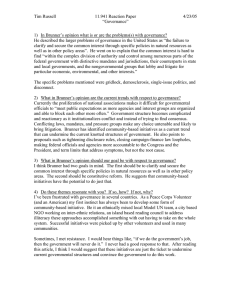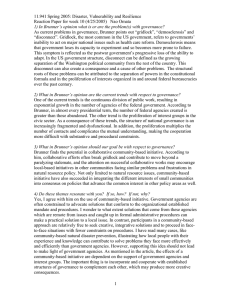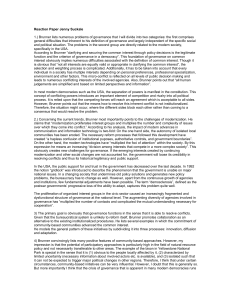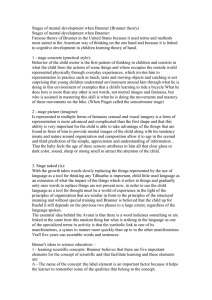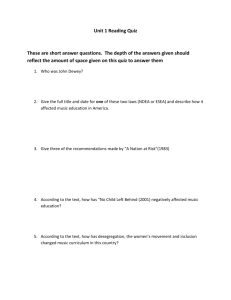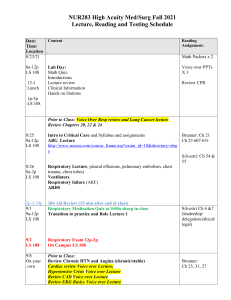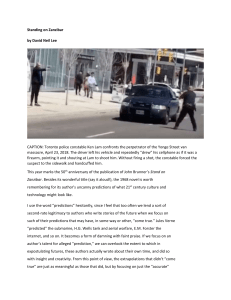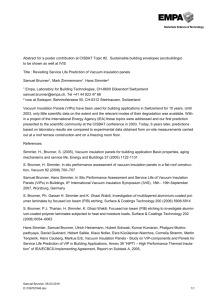Tristan Weir 11.941 – Spring 2005 Response Paper – 4/25/05
advertisement
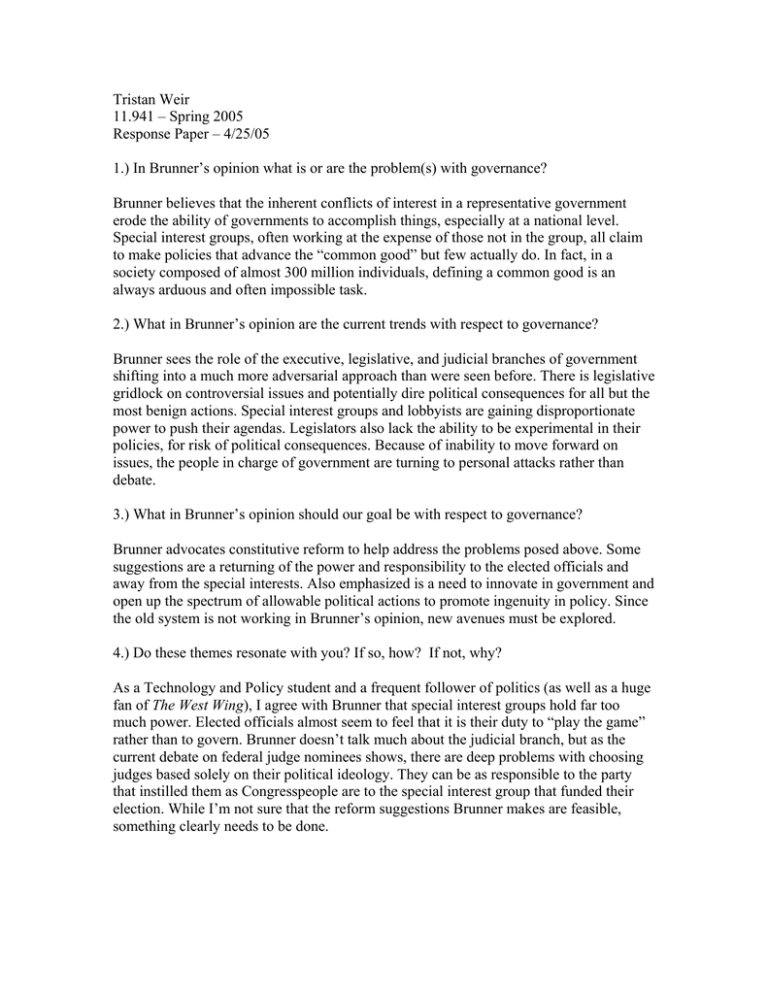
Tristan Weir 11.941 – Spring 2005 Response Paper – 4/25/05 1.) In Brunner’s opinion what is or are the problem(s) with governance? Brunner believes that the inherent conflicts of interest in a representative government erode the ability of governments to accomplish things, especially at a national level. Special interest groups, often working at the expense of those not in the group, all claim to make policies that advance the “common good” but few actually do. In fact, in a society composed of almost 300 million individuals, defining a common good is an always arduous and often impossible task. 2.) What in Brunner’s opinion are the current trends with respect to governance? Brunner sees the role of the executive, legislative, and judicial branches of government shifting into a much more adversarial approach than were seen before. There is legislative gridlock on controversial issues and potentially dire political consequences for all but the most benign actions. Special interest groups and lobbyists are gaining disproportionate power to push their agendas. Legislators also lack the ability to be experimental in their policies, for risk of political consequences. Because of inability to move forward on issues, the people in charge of government are turning to personal attacks rather than debate. 3.) What in Brunner’s opinion should our goal be with respect to governance? Brunner advocates constitutive reform to help address the problems posed above. Some suggestions are a returning of the power and responsibility to the elected officials and away from the special interests. Also emphasized is a need to innovate in government and open up the spectrum of allowable political actions to promote ingenuity in policy. Since the old system is not working in Brunner’s opinion, new avenues must be explored. 4.) Do these themes resonate with you? If so, how? If not, why? As a Technology and Policy student and a frequent follower of politics (as well as a huge fan of The West Wing), I agree with Brunner that special interest groups hold far too much power. Elected officials almost seem to feel that it is their duty to “play the game” rather than to govern. Brunner doesn’t talk much about the judicial branch, but as the current debate on federal judge nominees shows, there are deep problems with choosing judges based solely on their political ideology. They can be as responsible to the party that instilled them as Congresspeople are to the special interest group that funded their election. While I’m not sure that the reform suggestions Brunner makes are feasible, something clearly needs to be done.
